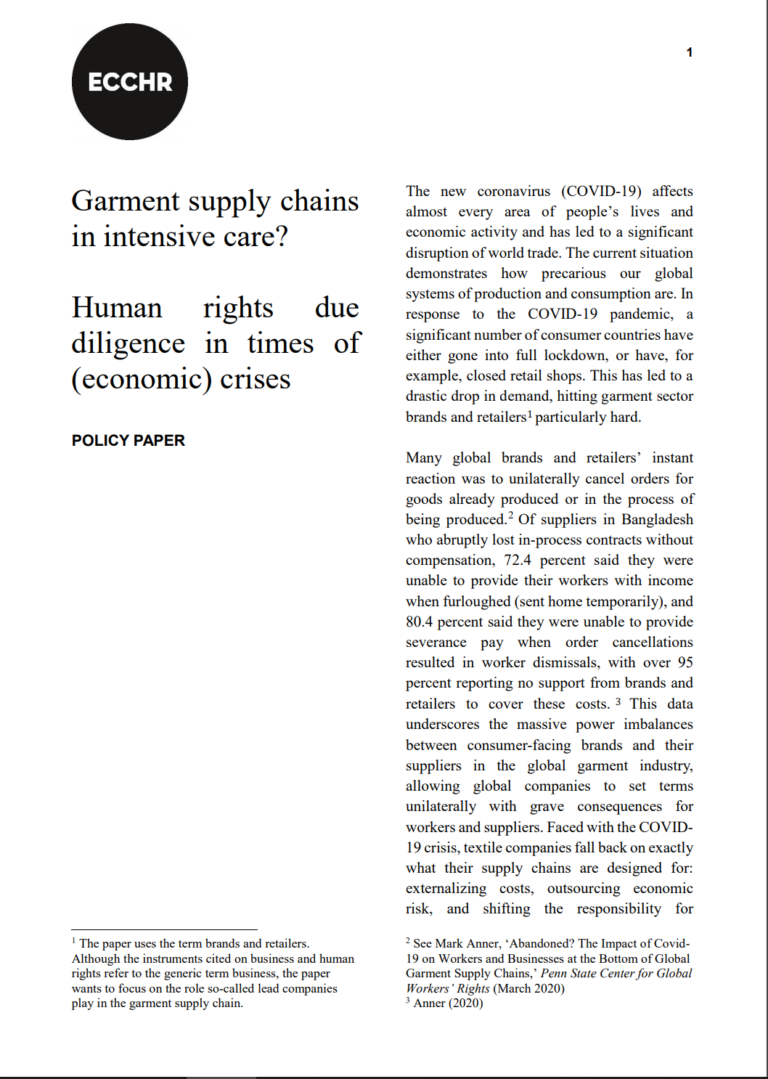Supply Chain Risk Report: Child and forced labour in Canadian consumer products
PublicationsThe report looks at Canada’s connection to the issues of human trafficking and forced and child labour, by cross-referencing recent data on Canadian imports with the U.S. Department of Labour’s List of Goods Produced by Child Labour or Forced Lab...Read More

